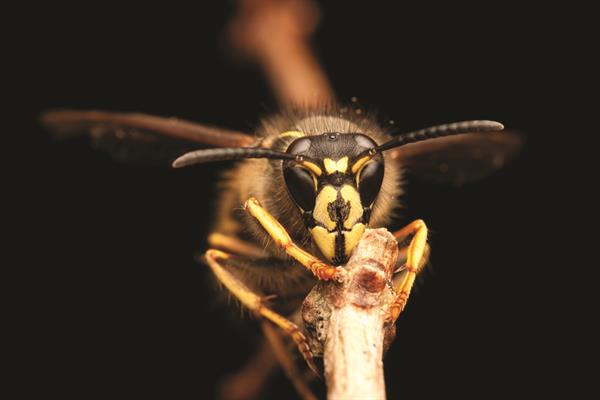Summer is here. We want to help protect you from harmful stinging insects like wasps, yellowjackets and hornets that could be buzzing and nesting nearby.
Stinging insects thrive in the summer months. These insects can be very dangerous—considerably more to those with any allergies to them—and should always be handled by a licensed pest control professional, especially when it comes to nest removal when hornets and wasps may attack.
Helpful Tips
According to the National Pest Management Association, stinging insects send more than 500,000 people annually to the emergency room. We are committed to helping reduce this number by teaching you how to protect yourself with these tips:
- Seal all visible cracks and crevices to keep these pests from moving indoors, and regularly inspect around the yard and along the perimeter of the house for nests.
- During a picnic or cookout, cover all food when outside and be sure to keep tight-fitting lids on trash bins. Keep an eye on open drink containers as well. Stinging insects like sweet drinks and can crawl inside cans, bottles and cups and be swallowed.
- If spending long periods of time outdoors, avoid excessive use of perfume or cologne, as yellowjackets and other stinging insects are attracted to sweet-smelling scents. When possible, use unscented shampoos, soaps, lotions and sunscreen.
- Avoid wearing dark colors and floral prints as these patterns can attract stinging insects. Wear closed-toe shoes, especially in grassy areas where hornets and other pests often nest.
- Remain calm, cool and collected. Do not swat a nearby pest or flail in panic. These movements may provoke an attack. Instead, calmly and slowly walk away from the area. The insect should fly away without causing any harm.
We have been dealing with stinging insects for over 125 years. Our specialists can identify and eliminate all types of stinging insects. There are about 20,000 types of bees in the world, and at least 14 main species in Massachusetts, Connecticut and Rhode Island.
If you need help with the removal of stinging insects, call us today: 1-800-338-6757.

